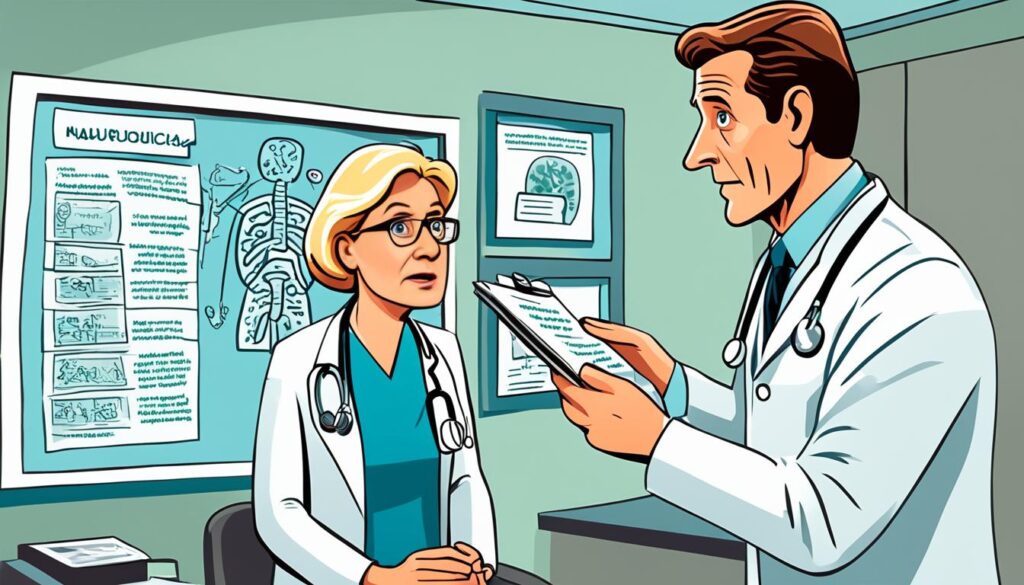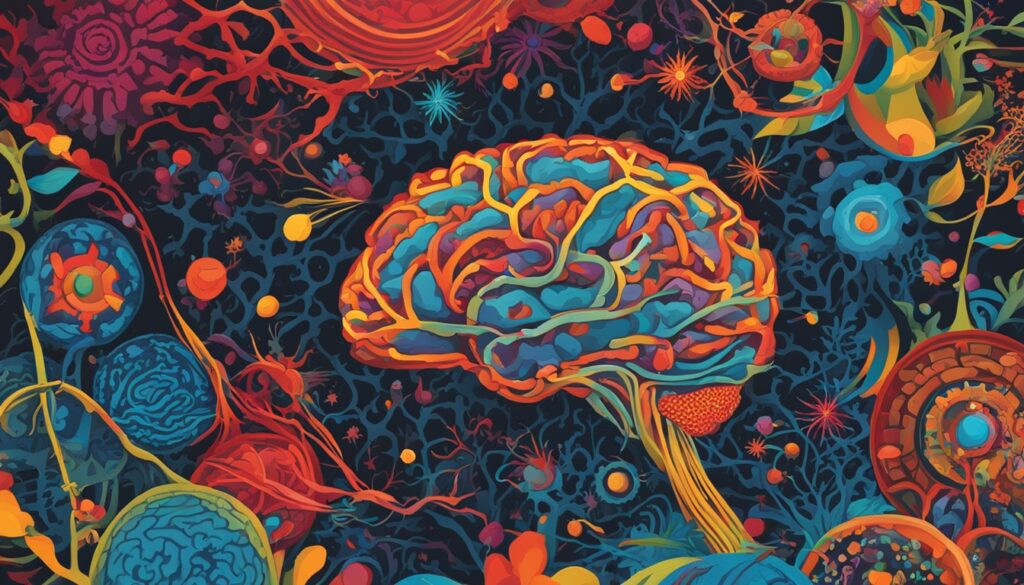Have you ever heard about syphilis affecting the brain?
That condition is called neurosyphilis, and it can happen when syphilis, a sexually transmitted infection, goes untreated for too long. Many people don’t know that syphilis can cause serious brain problems if ignored. So, if you’re wondering what is neurosyphilis, this blog is your complete guide.
In this blog, we will explain what is neurosyphilis, how it happens, its symptoms, how doctors find it, and what can be done to treat it. Let’s help you understand this condition in the simplest way possible.

What is Neurosyphilis?
What is neurosyphilis? It is a serious health problem where syphilis, a bacterial infection, spreads to the brain and spinal cord. This happens when syphilis is not treated in time. The infection is caused by a bacterium called Treponema pallidum.
This bacterium normally spreads through sexual contact. If the infection is not treated early, it can enter the central nervous system (CNS) and cause brain and spine infection. This stage is called neurosyphilis.
What is neurosyphilis is best understood as the brain-related complication of untreated syphilis.
Who is at Risk?
Neurosyphilis is more likely to affect:
- Individuals with untreated syphilis
- People with compromised immune systems, such as those with HIV/AIDS
- Men who have sex with men (MSM), who account for over 80% of syphilis cases in some regions
Is Neurosyphilis Common Today?
You may think this is a disease from the past, but neurosyphilis still exists. Cases are rising in many parts of the world, especially among high-risk groups.
According to the CDC:
- In 2023, the CDC reported a 74% rise in syphilis cases since 2019 in the U.S.
- Neurosyphilis is more common in people who are HIV-positive.
- It is still seen in both developed and developing countries.
High-risk groups include:
- People living with neurosyphilis in HIV
- People who have multiple sexual partners
- Those with poor access to medical care

Table of Contents
ToggleCauses of Neurosyphilis
How Does Syphilis Lead to Neurosyphilis?
Syphilis moves through four stages: primary, secondary, latent, and tertiary. If not treated, the bacteria can reach the brain, causing neurosyphilis.
Here’s how it happens:
- The bacteria Treponema pallidum enters the body through sexual contact.
- If untreated, it stays hidden and silently affects the nervous system.
- Over time, it leads to Treponema pallidum complications in the brain and spinal cord.
People with weak immune systems, like those with HIV, are more likely to get neurosyphilis.
Risk Factors for Developing Neurosyphilis
Not everyone with syphilis gets neurosyphilis. But some people are more at risk:
- Unsafe sex without condoms
- Sharing needles or intravenous drug use
- Living in places with poor healthcare access
- Ignoring or delaying neurosyphilis diagnosis
Being aware of these risks can help in early detection and treatment.
Types of Neurosyphilis
Doctors classify neurosyphilis stages into 5 types. Each one has different symptoms and occurs at different stages of infection.
| Type | Common Symptoms | Stage |
|---|---|---|
| Asymptomatic | No symptoms, but infection found in CSF tests | Any stage |
| Meningeal | Headache, stiff neck, nausea | Early |
| Meningovascular | Stroke-like symptoms | Early |
| General Paresis | Confusion, personality changes, dementia | Late |
| Tabes Dorsalis | Nerve pain, balance problems, bladder issues | Late |
These types help doctors understand the stage and type of STD brain complications in a patient.
Symptoms of Neurosyphilis
Symptoms depend on the form and stage of the disease.
Early Symptoms:
- Headache
- Neck stiffness
- Nausea or vomiting
- Vision or hearing issues
Advanced Symptoms:
- Memory loss
- Personality changes
- Seizures
- Muscle weakness
- Bladder dysfunction

How is Neurosyphilis Diagnosed?
Clinical Examination & History Taking
Diagnosis starts with a good checkup. The doctor will ask about your medical history and symptoms.
They’ll check for:
- Memory problems, behavior changes, or muscle weakness
- Past or untreated syphilis
CSF (Cerebrospinal Fluid) Testing
Doctors use a lumbar puncture (spinal tap) to take fluid from your spine and test it.
They check for:
- CSF VDRL test (detects infection)
- White blood cell count
- FTA-ABS (confirms syphilis)
- Protein levels
These are critical tests for neurosyphilis diagnosis.
Imaging and Other Tests
Sometimes, brain scans and blood tests are also done.
- MRI or CT scans to look for brain damage
- Blood tests: RPR, TPHA, and FTA-ABS to confirm syphilis
These tests help to rule out other causes and confirm a CNS infection.
How Long Does Diagnosis Take?
The whole process may take 1 to 2 weeks, depending on the tests needed. If caught early, treatment can start quickly.
That’s why early testing in high-risk people is very important.
Treatment of Neurosyphilis
Antibiotic Therapy
- Penicillin G is the primary treatment, typically administered intravenously over 10-14 days.
- Alternative regimens may be used for penicillin-allergic patients.
Follow-Up Care
Patients require periodic monitoring with blood tests and lumbar punctures at 3, 6, 12, 24, and 36 months post-treatment to ensure the infection is resolved.
Prognosis and Long-Term Outlook
The future depends on how early the disease is found.
| Stage | Treatment Outcome |
| Early-stage | Often cured, few complications |
| Late-stage | May cause permanent damage |
The neurosyphilis prognosis is much better when the disease is treated early.
Complications of Neurosyphilis
Without timely treatment, neurosyphilis can lead to:
- Irreversible neurological damage
- Paralysis
- Blindness or hearing loss
- Death
Early diagnosis and intervention are crucial to preventing these serious outcomes.
Prevention of Neurosyphilis
1. Early Detection
Routine STI screening for at-risk individuals is the first line of defense.
2. Safe Sexual Practices
Using condoms and reducing the number of sexual partners can significantly lower the risk.
3. Prompt Treatment of Syphilis
Antibiotic treatment in early syphilis stages prevents its progression to neurosyphilis.
Special Considerations: Neurosyphilis in HIV Patients
People with HIV have a weaker immune system, which means syphilis can reach their brain faster.
- Neurosyphilis develops quicker
- Symptoms may be harder to identify
CDC data shows that HIV-positive patients are 2 to 5 times more likely to develop neurosyphilis.
Doctors face extra problems when diagnosing neurosyphilis in HIV patients:
- Symptoms may mix with other HIV-related problems
- Patients may get repeated relapses
This makes it harder to manage neurosyphilis in HIV patients.
Conclusion
Neurosyphilis is a preventable but potentially devastating complication of untreated syphilis. It poses severe risks to brain and spinal cord health. Prompt antibiotic treatment, ongoing follow-up care, and preventive measures are essential to manage and reduce its impact.
If you’re experiencing unexplained neurological symptoms and have a history of syphilis or unprotected sex, seek medical advice immediately.
FAQs
Q1: What is neurosyphilis?
A: It’s a brain and spinal cord infection caused by untreated syphilis. It leads to memory loss, mood changes, and even paralysis.
Q2: How do you get neurosyphilis?
A: Through the untreated spread of Treponema pallidum to the nervous system.
Q3: What are early symptoms?
A: Early symptoms include headache, irritability, trouble thinking, neck stiffness, and nausea. If caught early, the disease is easier to manage.
Q4: How is it diagnosed?
A: Blood tests, lumbar puncture, and possibly imaging.
Q5: Can neurosyphilis be cured?
A: Yes, with early antibiotic treatment, often penicillin.
Q6: Is neurosyphilis contagious?
A: No. Once it reaches the brain, it is not contagious. But the original syphilis infection is.
Q7: Who is most at risk?
A: HIV-positive individuals, MSM, and people with untreated syphilis.
About The Author

Medically reviewed by Dr. Chandril Chugh, MD, DM (Neurology)
Board-Certified Neurologist
Dr. Chandril Chugh is a U.S.-trained, board-certified neurologist with expertise in diagnosing and managing neurological disorders, including migraines, epilepsy, Parkinson’s disease, and movement disorders. His clinical focus includes evidence-based neurological care and patient education.
All content is reviewed for medical accuracy and aligned with current neurological guidelines.




